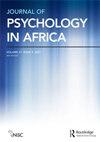尼日利亚银行员工薪酬满意度与工作与生活平衡:心理赋权和性别的作用
IF 0.8
4区 心理学
Q3 PSYCHOLOGY, MULTIDISCIPLINARY
引用次数: 1
摘要
摘要本研究探讨了心理赋权和性别在银行员工薪酬满意度与工作与生活平衡关系中的作用。共有393名尼日利亚银行员工参与了这项研究(女性占49.36%;平均年龄32.07岁,SD = 6.93岁)。Hayes Macro PROCESS分析结果显示,薪酬满意度与工作生活平衡呈正相关。薪酬满意度与更高的心理授权有关。心理赋权与更高的工作与生活平衡有关。心理赋权在薪酬满意度与工作与生活平衡的关系中起着完全中介作用。性别不影响工作与生活平衡,也不调节薪酬满意度与工作与生活平衡之间的联系。研究结果表明,心理赋权增强了银行业薪酬满意度与员工工作与生活平衡之间的关系。由此可见,银行部门的人力资源管理者应该利用员工的心理赋权,将其作为跨性别和薪酬水平的工作与生活平衡的资源。关键词:银行员工性别员工幸福感与留任工作满意度薪酬满意度心理赋权工作与生活平衡数据可得性作者确认已获得支持本研究结果的数据,如有需要将由通讯作者提供。本研究经费自理。本文章由计算机程序翻译,如有差异,请以英文原文为准。
Pay satisfaction and work–life balance among Nigerian bank employees: The roles of psychological empowerment and gender
AbstractThis study examined the roles of psychological empowerment and gender in the relationship between pay satisfaction and work–life balance among bank employees. In total, 393 Nigerian bank employees participated in the study (female (49.36%; mean age = 32.07, SD = 6.93 years). Hayes Macro PROCESS analysis results showed that pay satisfaction was positively related to work–life balance. Pay satisfaction was associated with higher psychological empowerment. Psychological empowerment was associated with higher work–life balance. Psychological empowerment fully mediated the relationship between pay satisfaction and work–life balance. Gender did not affect work–life balance or moderate the link between pay satisfaction and work–life balance. The study findings suggest that psychological empowerment enhances the relationship between pay satisfaction and employees’ work–life balance in the banking sector. By implication, banking sector human resource managers should leverage employee psychological empowerment as a resource for work– life balance across gender and pay scales.Keywords: bank employeesgenderemployee well-being and retentionjob satisfactionpay satisfactionpsychological empowermentwork-life balance Data availabilityThe authors confirm that the data supporting the findings of this study are available and will be provided by the corresponding author if required.Additional informationFundingThe research was self-funded.
求助全文
通过发布文献求助,成功后即可免费获取论文全文。
去求助
来源期刊

Journal of Psychology in Africa
PSYCHOLOGY, MULTIDISCIPLINARY-
CiteScore
1.70
自引率
16.70%
发文量
62
期刊介绍:
Findings from psychological research in Africa and related regions needs a forum for better dissemination and utilisation in the context of development. Special emphasis is placed on the consideration of African, African-American, Asian, Caribbean, and Hispanic-Latino realities and problems. Contributions should attempt a synthesis of emic and etic methodologies and applications. The Journal of Psychology in Africa includes original articles, review articles, book reviews, commentaries, special issues, case analyses, reports and announcements.
 求助内容:
求助内容: 应助结果提醒方式:
应助结果提醒方式:


